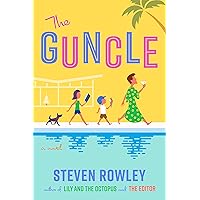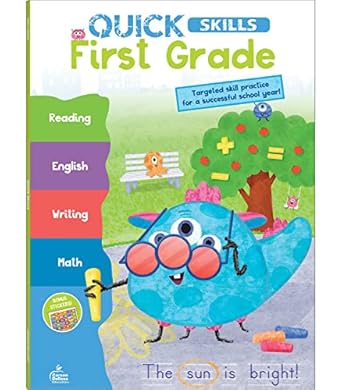Exploring Love and Laughter in \’The Guncle\’
In recent years, literature has increasingly embraced diverse narratives that challenge traditional family dynamics. One such narrative is found in the novel “The Guncle” by Steven Rowley. The book explores themes of love, loss, and laughter through the lens of a gay uncle, affectionately known as a “guncle.” This article delves into the significance of love and laughter in the story, examining how these elements contribute to the characters’ development and the narrative’s overall impact.
The Premise of “The Guncle”

Published in 2021, “The Guncle” tells the story of Patrick O’Leary, a gay man and former television star who is reluctantly thrust into the role of guardian for his young niece and nephew after the death of their mother. The novel is set against the backdrop of a sunny Palm Springs, where Patrick navigates the challenges of parenting while coming to terms with his own grief and identity. At its core, “The Guncle” is about the bonds of family, the healing power of humor, and the transformative nature of love.
Understanding Love in “The Guncle”
Love is a central theme in “The Guncle,” manifesting in various forms throughout the narrative. The relationship between Patrick and his niece and nephew serves as a poignant exploration of unconditional love. Despite the initial difficulties, Patrick learns to embrace his role and connect with his family in meaningful ways.
The Many Faces of Love
Rowley illustrates different types of love in the novel, including:
- Familial Love: Patrick’s love for his niece and nephew transcends traditional parental boundaries, showcasing a unique bond that fosters emotional growth and healing.
- Romantic Love: Patrick’s journey includes reflections on past relationships, emphasizing how love can shape and redefine one’s identity.
- Self-Love: As the story progresses, Patrick learns to love himself, embracing his individuality and past mistakes, which ultimately allows him to be a better guardian.
The Power of Healing Through Love

The narrative illustrates that love is not just an emotion but a healing force. Patrick’s relationship with his niece and nephew acts as a catalyst for his own healing process. Through their interactions, he finds joy and purpose, allowing him to confront his grief over the loss of his sister. This transformation is a testament to how love can help individuals navigate their pain and emerge stronger.
The Role of Laughter in “The Guncle”

Laughter is another significant element in “The Guncle,” serving as a counterbalance to the themes of loss and sorrow. Rowley uses humor to lighten the narrative and provide comic relief amidst the emotional weight of the story.
Finding Joy in Everyday Moments
Patrick’s witty observations and playful banter with his niece and nephew highlight the importance of finding joy in everyday life. Several instances in the book showcase how humor can bridge generational gaps and foster deeper connections:
- Humorous Mishaps: Patrick’s attempts at parenting often lead to comical situations, allowing readers to laugh while still addressing serious themes.
- Playful Interactions: The dynamic between Patrick and the children is filled with playful teasing and jokes, illustrating how laughter can create a warm family atmosphere.
- Humor as a Coping Mechanism: The characters use humor to cope with their grief, demonstrating how laughter can be a healthy response to loss.
Humor and Acceptance

Patrick’s humor also plays a critical role in his acceptance of his identity. As a gay man navigating societal expectations and family dynamics, he uses laughter to challenge stereotypes and affirm his place within his family. This aspect of the novel resonates with many readers, as it underscores the importance of embracing one’s identity with confidence and humor.
The Intersection of Love and Laughter
The interplay between love and laughter in “The Guncle” creates a rich tapestry of emotional experiences. Rowley masterfully weaves these themes together, demonstrating that they are not mutually exclusive but rather interconnected aspects of the human experience.
Building Resilience Through Humor

Throughout the novel, the characters face significant challenges, including grief, identity crises, and familial obligations. However, they also discover that laughter can be a source of resilience. The ability to find humor in difficult situations enables them to navigate their struggles while maintaining a sense of hope and connection.
Encouraging Open Conversations
The blend of love and laughter encourages open conversations about grief, identity, and family. By addressing these topics with humor, Rowley fosters an environment where readers can engage with complex emotions without feeling overwhelmed. This approach allows for a more profound understanding of the characters’ journeys and the lessons they learn along the way.
Case Studies and Real-Life Implications

The themes of love and laughter in “The Guncle” resonate with real-life experiences of families, particularly in non-traditional family structures. Studies have shown that humor plays a vital role in family dynamics, often serving as a buffer during challenging times. For example:
- Research on Humor in Families: A study published in the journal “Family Relations” found that families who engage in humorous interactions tend to have stronger bonds and better communication.
- The Impact of Laughter on Mental Health: According to the Mayo Clinic, laughter can reduce stress, enhance mood, and improve overall well-being, making it a crucial component in coping with grief and loss.
- Non-Traditional Families and Humor: In families with diverse structures, such as those with LGBTQ+ parents or guardians, humor can help navigate societal challenges and foster a sense of belonging.
Conclusion: The Lasting Impact of Love and Laughter
“The Guncle” is more than just a story about a gay uncle and his two children; it is a celebration of the enduring power of love and laughter. Through Patrick’s journey, readers are reminded that love comes in many forms and that laughter can act as a balm for life’s hardships. The novel encourages us to embrace our identities, foster meaningful connections, and find joy even in the face of adversity.
Ultimately, “The Guncle” serves as a poignant reminder that while life may present its challenges, love and laughter can guide us through. By embodying these themes, Rowley not only tells a touching story but also invites readers to reflect on their own relationships and the ways in which humor can enrich their lives. In a world often plagued by division and sorrow, “The Guncle” stands as a testament to the healing power of love and laughter—an essential message for us all.


